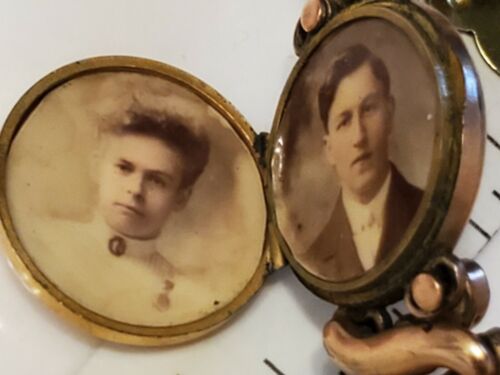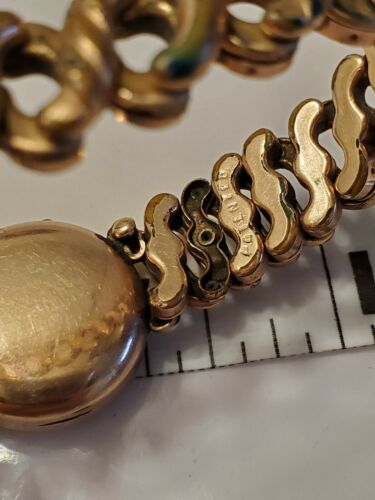-40%
LUCKY SWASTIKA ( pre 1920s ) Locket Bracelet With Antique Photos RARE
$ 105.6
- Description
- Size Guide
Description
Diamond chips and a red ruby in the center make up the face on the bracelet. Inside you'll find a couple old sweetheart photos. Bracelet is marked with the word patented. no other markings.The bracelet itself is missing a part of the link (see photos) but is in good displayable and wearable condition. The accordion style expansion links are designed to stretch and "snap back" to original position... a few of them have lost some of that "elasticity" and remain in the stretched position but this is barely noticeable and doesn't really effect how the bracelet wears or displays. Other than that one of the diamond chips is missing - normal signs of wear from it being worn and stored over the years. no markings other than the word "patented" (also shown in photos) The photos inside look late 1890s - early 1900s to me (but I could be wrong)
Judging by their clothing I'm guessing this at least pre dates 1920?)
some research I pulled from different sources to try and learn about the pre-war meaning of the symbol:
"... It has been a part of Japanese culture since the introduction of Buddhism about 1,500 years ago." -Lionsroar
"... there's widespread general use of the swastika in history, facing different directions, at different angles, with dots or lines --
Prior to WWII it was the cross of Pērkons... it was a sign used for health and well-being, and a protector against evil.
In English-speaking countries, swastika postcards were sent as a birthday or a New Year’s greeting.
In Buddhism, the swastika was considered
to symbolize the auspicious footprints of the Buddha
. The left-facing sauwastika is often imprinted on the chest, feet or palms of Buddha images. It is an aniconic symbol for the Buddha in many parts of Asia and homologous with the dharma wheel and has been found in old temples. It also
appears in many versions in
Latvian
folk costumes and crafts. B
oth Latvian and Finnish militaries, used a swastika insignia. so pinpointing this bracelet's origin is unknown to me - there are so many possibilities... "
-wiki


















